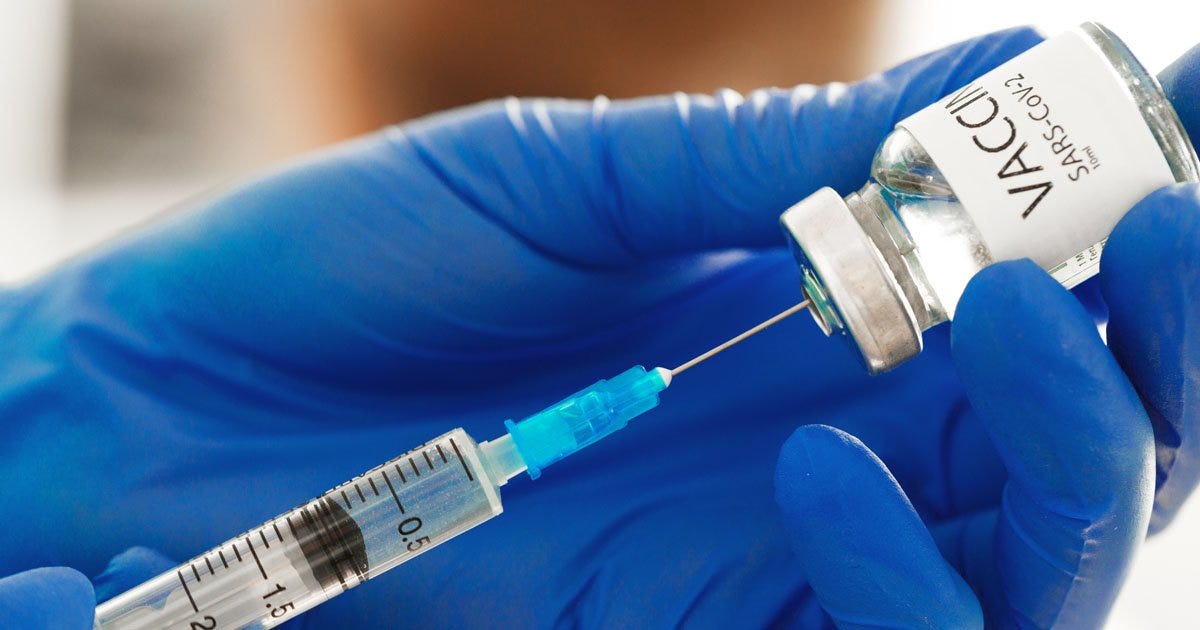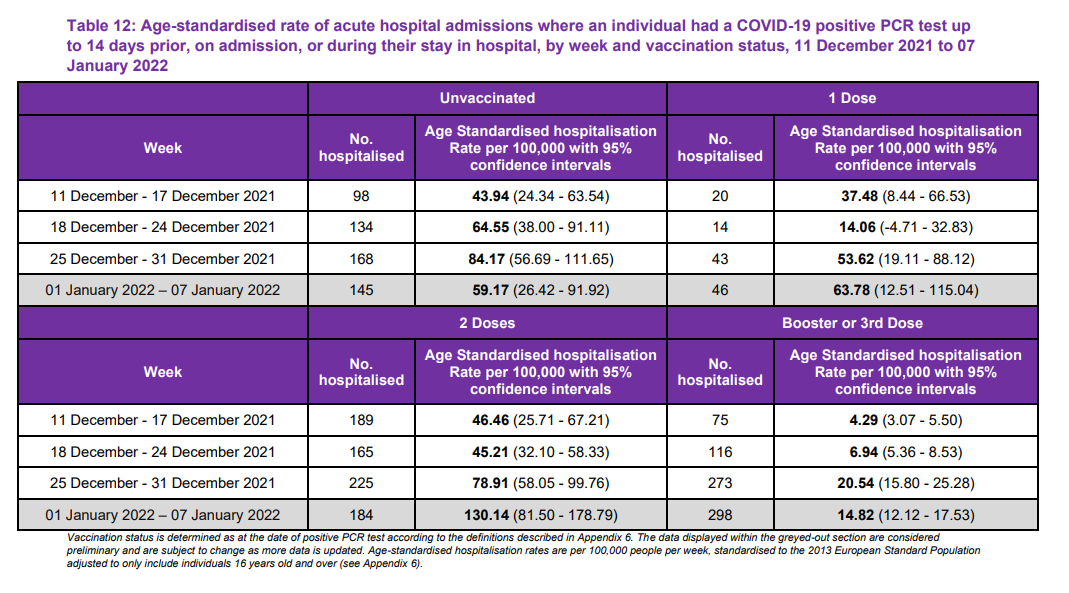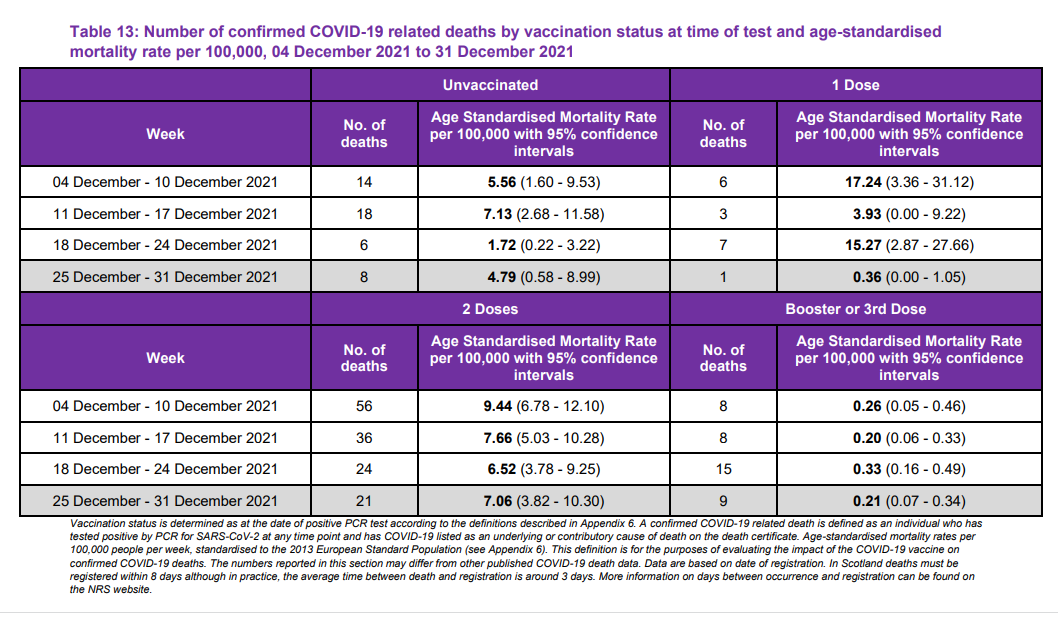The latest Public Health Scotland COVID-19 & Winter Statistical Report published yesterday, shows quite comprehensively, that two doses of the MRNA vaccines are more than worthless. The UKHSA data was already showing negative efficacy against case rates but this latest Scottish data shows negative efficacy in case rates, hospitalisations and deaths!
This is when analysing people who have had 2 doses versus the unvaccinated. The third dose booster shows protection against hospitalisation and death but who knows how quickly that will fade.
Firstly, looking at age-standardised case rates per 100,000 individuals between 11 December 2021 and 7 January 2022. This is the period when Omicron started dominating and this is obvious in the data by the final week.
At the beginning of December it was clear that vaccine protection against infections was already in negative efficacy (and almost at 0% protection after a booster). However, in the first week of January this had accelerated with a rate of 1,092 versus a rate of 2499 for the two dosed group (1466 for the booster group). You were 2.3 times more likely to catch Covid if you were double dosed (and 1.3 times more likely if boosted).
The chances of getting infected were actually accelerating in the vaccinated group with a 202% increase over the 4 weeks versus 126% increase in the unvaccinated (220% increase for the boosted).
Next, lets take a look at hospitalisations.
With a 59.17 rate in the unvaccinated versus a 130.14 rate in the vaccinated, you were 2.2 times more likely to go to hospital with two doses.
And again, the acceleration in rates makes things look even worse. Whilst the unvaccinated group only increased by 35%, the two dosed group shot up by 180% (And the boosted group by 245%).
Finally, a comparison of death rates. At the beginning of December, two doses clearly offered some protection but by late December this protection had disappeared. You were 1.3 times more likely to die from COVID-19 if you had two doses of vaccine.
This time rates of deaths dropped in all groups. However, in the unvaccinated group it only dropped 14%, whilst the two dose group dropped 25% (boosted dropped 19%).
With increased chances of getting Covid, going to hospital with it and dying from it, two doses of vaccination was obviously a failure with Omicron. The booster shots provide protection against hospitalisation and death but are already in negative efficacy for infections. How long before the efficacy rates for hospitalisations and deaths also become negative with the boosters?
UPDATE - Thanks to Epistemology Proponent who pointed this out. On page 37 of the report it says:
"The higher age-standardised rate for individuals with two doses is a reflection of increasing hospitalisation rates for those aged 70+ (see figure 4). In other age groups the rates remain lower for those with two doses compared to those with one dose or unvaccinated. This group of individuals aged 70+ who have had two doses of vaccine but have not yet had a booster may include some very vulnerable individuals."
It would be great to see the data broken down by age, so we can compare.








Still (after 6 months) trying to figure out how anyone knows that the gene therapies "reduce hospitalization and death". As compared with what? Isn't this entirely subjective? I hear people all the time saying "I got covid but it was only mild as I got the vaccine". Maybe it would have been mild anyway, vaccine or not. How would you know?
I'm sold that the vaxes will ultimately fail, but just want to point out that on page 37 the report does say:
"The higher age-standardised rate for individuals with two doses is a reflection of increasing hospitalisation rates for those aged 70+ (see figure 4). In other age groups the rates remain lower for those with two doses compared to those with one dose or unvaccinated. This group of individuals aged 70+ who have had two doses of vaccine but have not yet had a booster may include some very vulnerable individuals."
So, while I'm looking forward to the demise of the vaccine narrative, it still isn't dead yet. But we're trending in that direction.